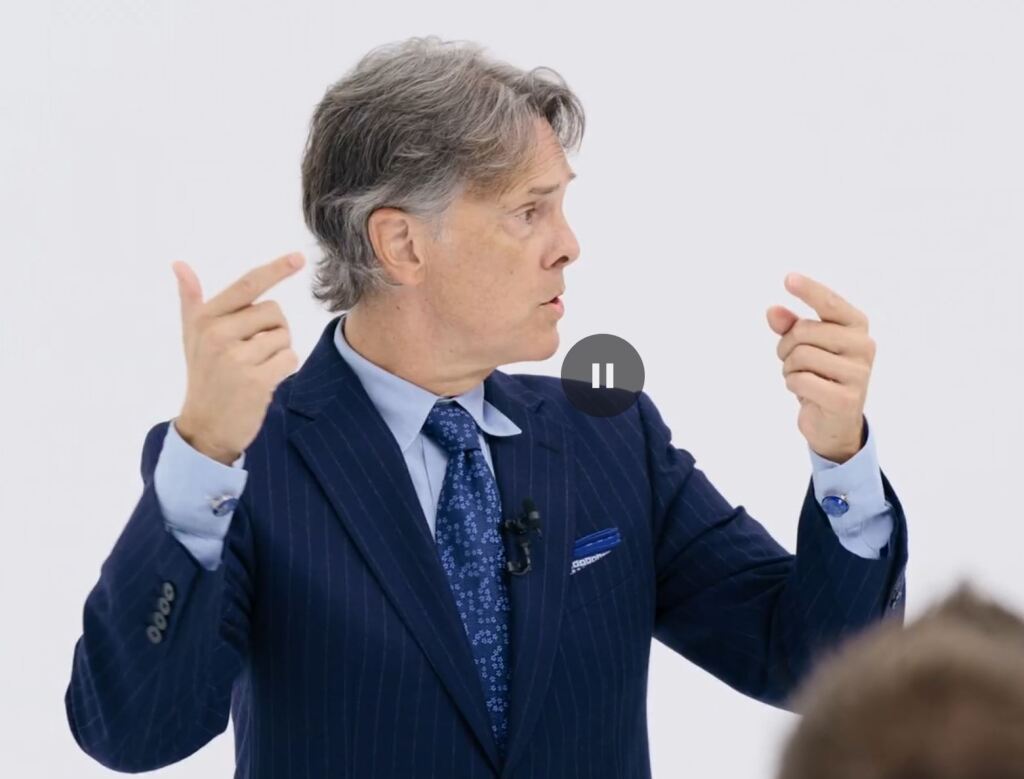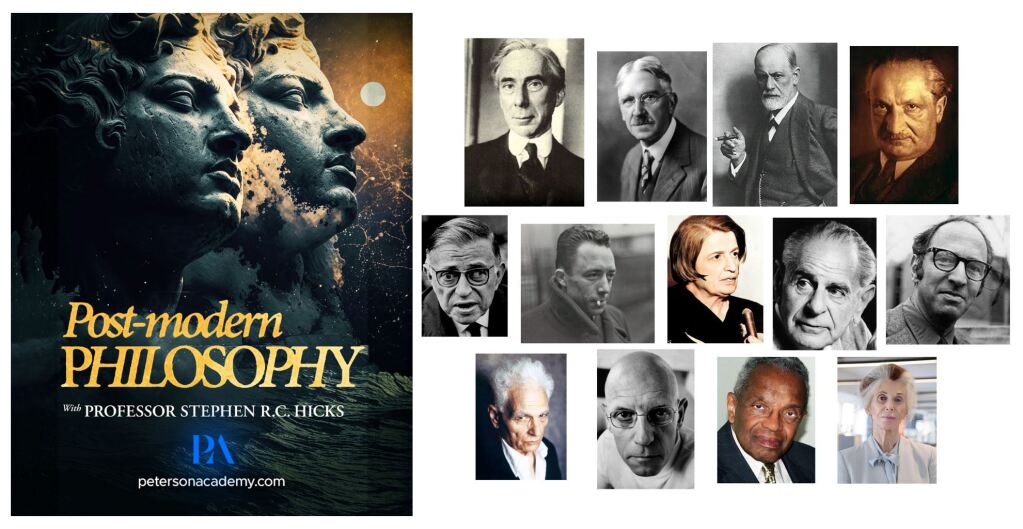
Lecture Four: Why has moral philosophy become skeptical and sterile? In contrast, Ayn Rand rejects the is-ought dichotomy and argues that ethics is “an objective necessity” for volitional, rational beings. Philippa Foot, also updating Aristotle, states that “the grounding of a moral argument is ultimately in facts about human life.” Themes: Naturalism. Bio-centrism. Value and virtue. Intrinsic/Objective/Subjective. Facts and Values. Ought from Is. Reason. Trolley Problems. Aristotle. Bertrand Russell, Rudolf Carnap, Max Horkheimer, Brian Medlin, Ernest Moody. Elizabeth Anscombe, Mary Midgely, Iris Murdoch, Simone de Beauvoir, Hannah Arendt, Simone Weil. Texts: Rand: “The Objectivist Ethics.” Foot: Natural Goodness.
About the Instructor
Stephen R. C. Hicks, Ph.D., has been Professor of Philosophy at Rockford University, Illinois; Visiting Professor of Business Ethics at Georgetown University, Washington, D.C.; Visiting Professor at the University of Kasimir the Great, Poland; Visiting Fellow at Harris Manchester College of Oxford University; and Visiting Professor at the Jagiellonian University, Poland.
In 2010, he won his university’s Excellence in Teaching Award.
Dr. Hicks is author of Explaining Postmodernism: Skepticism and Socialism from Rousseau to Foucault, Nietzsche and the Nazis, Entrepreneurial Living, Liberalism Pro and Con, and Eight Philosophies of Education. He has published in Business Ethics Quarterly, Review of Metaphysics, and The Wall Street Journal. His writings have been translated into twenty languages.

About the Course

In this eight lecture (nine-hour) course, Professor Hicks takes us on an exploration of the evolution of 20th-century philosophy, from the disappointed skepticism of Russell and the pragmatism of Dewey to the postmodern ideas of Foucault and Derrida. We examine how philosophers responded to major events and challenges of the era, such as World War I, World War II, and the Holocaust, and how their ideas shaped political ideologies and global conflicts.
The course also delves into the emergence of critical feminist and race theories, as well as the development of objective approaches to ethics and the debate surrounding the objectivity of science. Ultimately, we establish the profound influence of philosophy on history, demonstrating how philosophical ideas have the power to transform society and shape the course of human progress.

Course trailer and enrollment options at the Peterson Academy site. Professor Hicks’s other courses — Modern Philosophy, Philosophy of Politics: From the French Revolution to World War II, Philosophy of Politics: From the Cold War to After 9/11, and Modern Ethics — are coming soon to Peterson Academy.